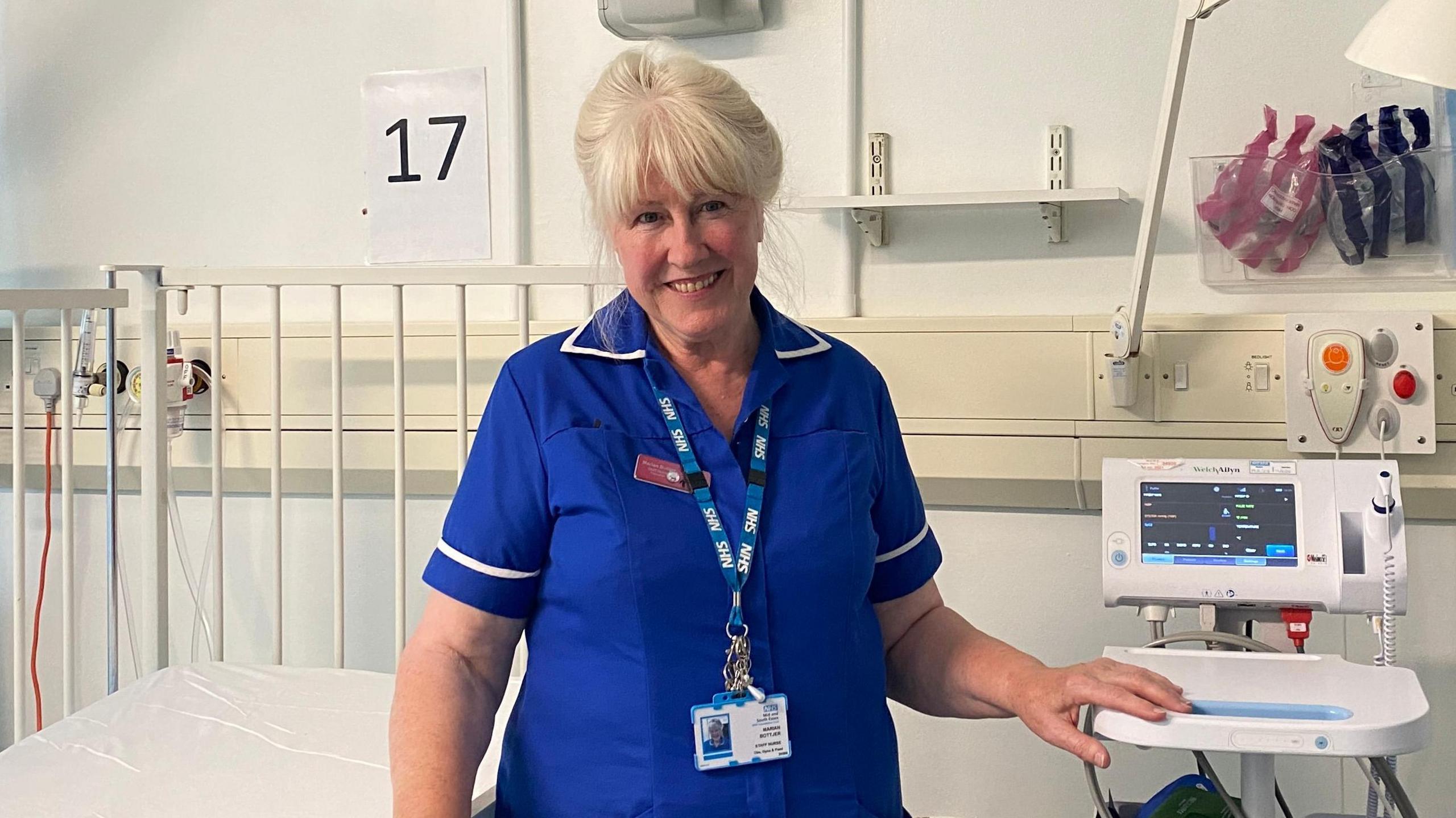'We had to bow to matron' - 50 years of nursing
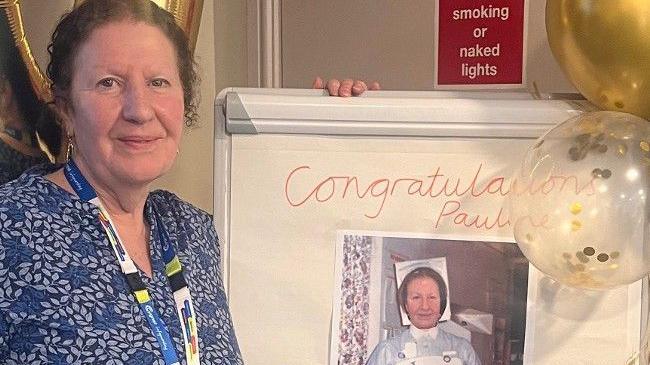
Pauline Rees had to convince her father nursing had moved on since Florence Nightingale
- Published
A Nottingham nurse who has marked 50 years in the profession has reflected on the changes she has seen.
Pauline Rees started in 1974, against the wishes of her father who did not want her "scrubbing floors all day".
As well as technology, Ms Rees said changes in management - she started her career having to bow to matron - and training had been the biggest shifts.
But she said the most important part of the job had stayed the same - "it's about the patients, and making them feel cared for and listened to".
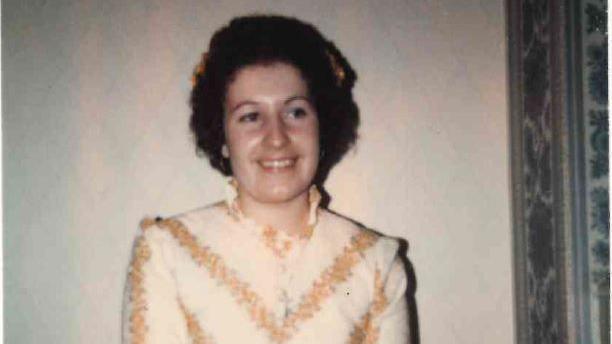
Pauline qualified as a nurse at 18 - to the dismay of her father
She started her training at the old Nottingham General Hospital - the current hospital, the Queen's Medical Centre, was still being built.
Ms Rees said: “When I told my parents, my father was angry. He said ‘I don’t want any daughter of mine scrubbing floors’. He felt it was a low class job.
"He seemed to think it was still like in Florence Nightingale's day but after a while he realised nursing had changed, and I think he was quite proud of me.”
One of the biggest changes has been how wards are run.
“When I first started, it was very strict," she said. "For example when the matron came on to the ward, you would have to stand, and bow to her. You would never consider stepping out of line.
“You would have to know the age, name, diagnosis, and treatment plan for every patient, even when there were up to 30 beds on the ward. It was so disciplined."
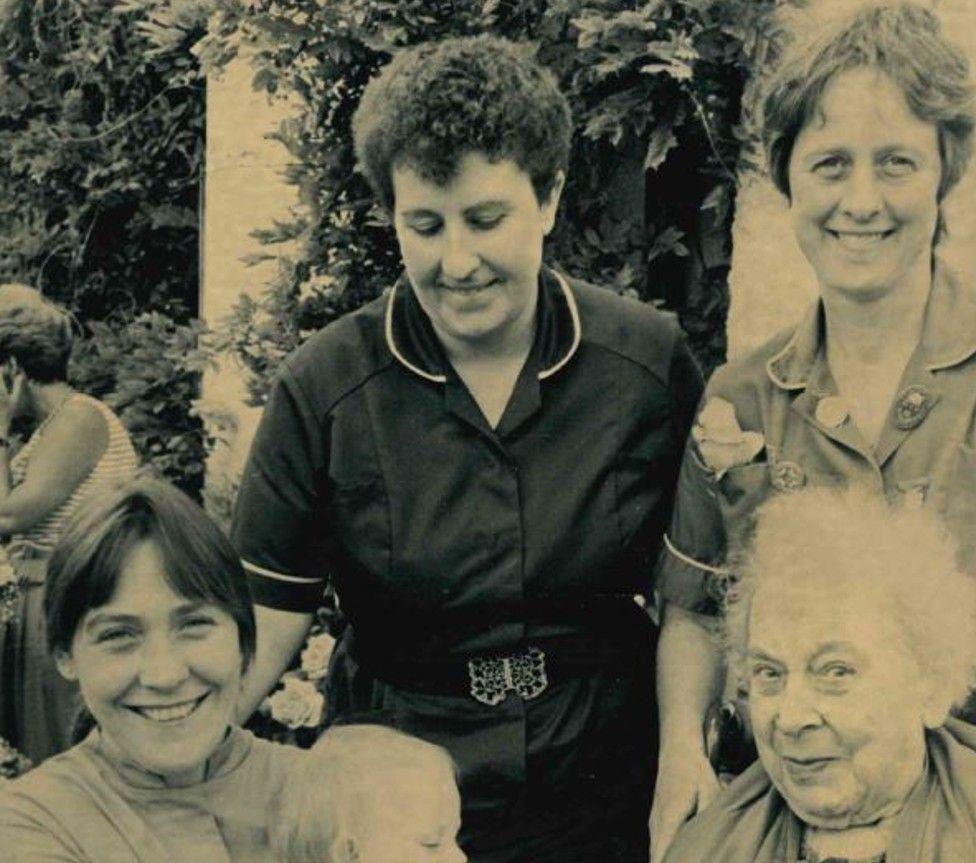
Pauline was matron of a nursing home in Bramcote where she helped to celebrate a resident’s 100th Birthday in 1995
But Ms Rees feels some of the approach to nursing has also changed.
She said: “Nursing has also become a more academic vocation over time, and has moved away from the bedside nursing of interacting with patients and getting to know them.
"My focus was always the patients, I really feel it's about the patients, and making them feel cared for and listened to.
“I did some time as a theatre nurse and I was really looking forward to that but it was probably the biggest disappointment as I didn’t have the patient contact because they were under anaesthetic.
"It felt a big loss to me not actually having that communication with patients."
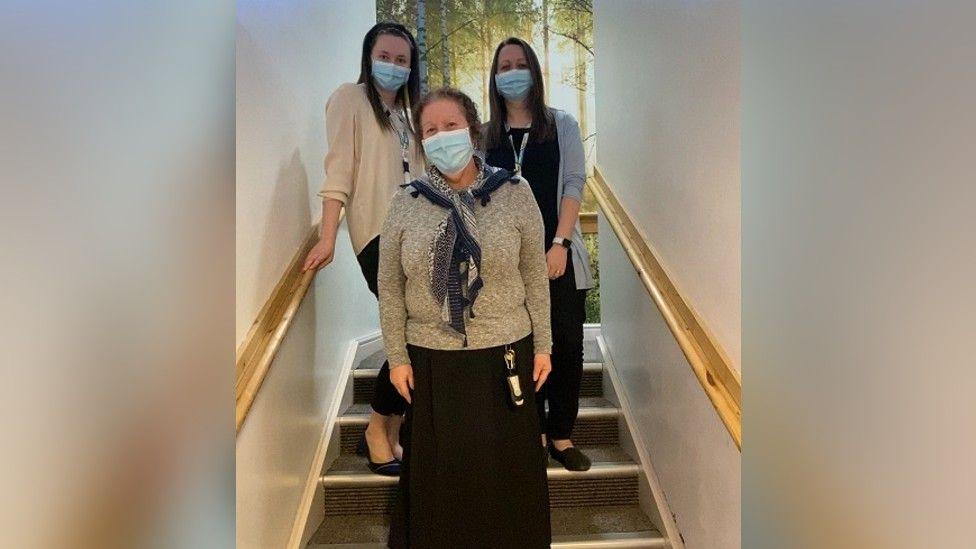
Pauline with two members of staff during the Covid pandemic in 2020
Her career gave her the opportunity to carry out various roles including being a staff nurse in A&E, gynaecology, district nurse, matron of a nursing home and even the nurse at an orphanage in Tanzania, Africa.
She said: "Some of the families out there, their most valuable possession was a plastic bucket, because you could carry water in it.
"I came back home and looked around my house and thought 'Do I really need all this stuff?'."
But another placement gave her longer term direction.
“As part of my training development, I did three months on a psychiatric ward and absolutely loved it," she said. "It made me realise I wanted to be there for people who were experiencing their darkest days.
“It is such a privilege when patients trust you with their inner most feelings.
“Mental health nursing is like a jigsaw. By listening, and observing you can begin to understand people, and hopefully gain insight into their behaviour, and why they’re saying the things they say.”

Pauline with staff at Aspen House, a mental health rehabilitation hospital for women
She now works as hospital manager of Cygnet Health Care Aspen House, a rehabilitation high support mental health hospital for women in Rotherham.
She said: “Psychiatric services have advanced so much since late 1970’s when care began to move away from the asylum. There is now so much more knowledge and advancements in treatments, which has enabled many other positive options to be considered when managing mental illness.”
Pauline said the biggest lesson she emphasises to student nurses is the importance of communication.
“I explain that communication is the greatest and most essential skill, and that I want to see them working directly with patients,” she said.
“It’s good to study, and gain knowledge, but fundamentally we are there to understand, and care for our patients.”
Get in touch
Tell us which stories we should cover in Nottingham
Follow BBC Nottingham on Facebook, external, on X, external, or on Instagram, external. Send your story ideas to eastmidsnews@bbc.co.uk, external or via WhatsApp, external on 0808 100 2210.
Related topics
- Published19 September 2024

- Published8 August 2024

- Published21 August 2024
